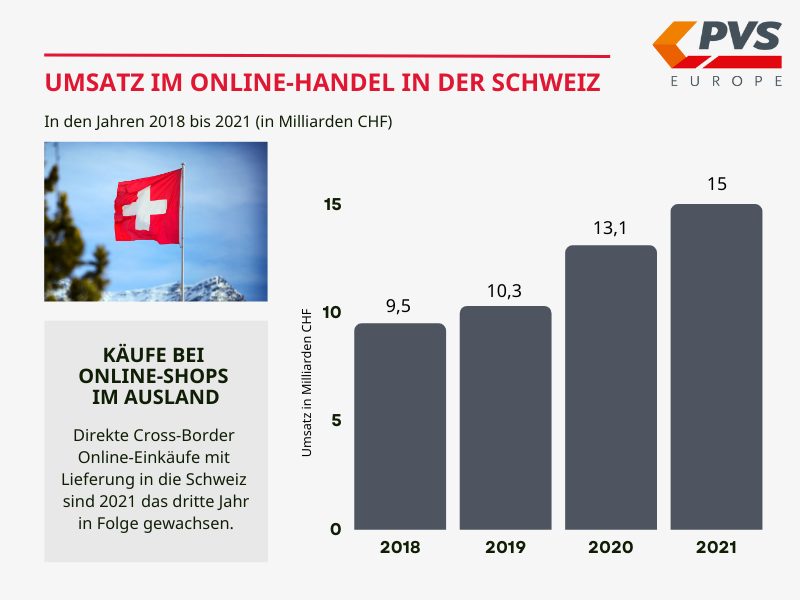Cross-border e-commerce with Switzerland: Successful despite the jungle of regulations
Banks, mountains, watches and chocolate – that’s what most people associate with Switzerland. International online retailers, on the other hand, have completely different thoughts when they think of the Alpine Republic. Many are attracted by the potential there, but at the same time they shy away from the numerous regulations.
Customs, their own currency and complicated tax laws prevent many companies from expanding their e-business to Switzerland. This is because all items imported into Switzerland must be cleared through customs. Errors in customs clearance mean expensive additional payments for the end customer. In addition, companies above a certain turnover threshold are liable to tax in Switzerland and require a local fiscal representation.
Despite its entry barriers, Switzerland is an attractive market for cross-border e-commerce. This is because the Swiss generate the second highest gross income per capita in the world. The unemployment rate in the Alpine state is at a record low. In online trading, the fashion, food and electronics sectors are currently booming.

Successful expansion despite a jungle of regulations
Work with a local partner
Find a fulfilment partner in Switzerland. They take care of import and export customs clearance, duties and taxes for you. As an authorised recipient and consignor, they can post customs declarations 24/7. You benefit from short delivery times and low shipping costs. You also ensure perfect returns processing. Because what applies to the import of goods also applies to the export of returns. These goods must be declared for export in order to apply for the refund of import duties. With a local fulfilment partner who knows the legal requirements inside out, you are on the safe side.
Helvetise your e-business
Only perfect localisation enables you to run a successful e-business. Use terms commonly used in Switzerland in your product names. Small details like a jacket instead of a skirt or a bicycle instead of a bike are important details. This also includes that the price indication CHF is placed in front of the price and not behind it as in other European countries. You should also clearly list the costs of shipping, duties and taxes in the ordering process.
The Swiss branch of PVS Europe, PVS Scherrer, has its headquarters in St. Margrethen near Bregenz on Lake Constance. The fulfilment and logistics professionals there support well-known international brands from various industries with their B2C and B2B business in Switzerland.
“We ensure that the goods are cleared through customs quickly and correctly, perform transit clearances and, where necessary, provide duty-free storage for the items. As an authorised recipient and consignor, we can post customs declarations around the clock. This means that our customers benefit from extended handling times. For foreign providers without a registered office in Switzerland, we set up and manage fiscal representations. There we take care of the correct processing of Swiss VAT,” explains Andreas Scherrer, Managing Director of PVS Scherrer AG.
Would you like more information on how to successfully establish your e-commerce in Switzerland? Our experts on site will be happy to help you.
If you have any questions or are interested, please contact Miroslav Gligoric directly: miroslav.gligoric@pvs-scherrer.ch Tel. +41718866565.

Estefania ist seit 2021 als Online Marketing Managerin bei PVS tätig und verfügt über umfassende Expertise im Bereich E-Commerce und Fulfillment. Mit Leidenschaft für digitale Trends erstellt sie hochwertige Blog-Inhalte. Ihre Tipps und Einblicke unterstützen Händler und E-Commerce-Brands dabei, aktuelle Herausforderungen zu meistern und von zukunftsweisenden Trends zu profitieren. Entdecken Sie spannende Artikel zu den Themen E-Commerce, Fulfillment und mehr.







